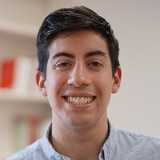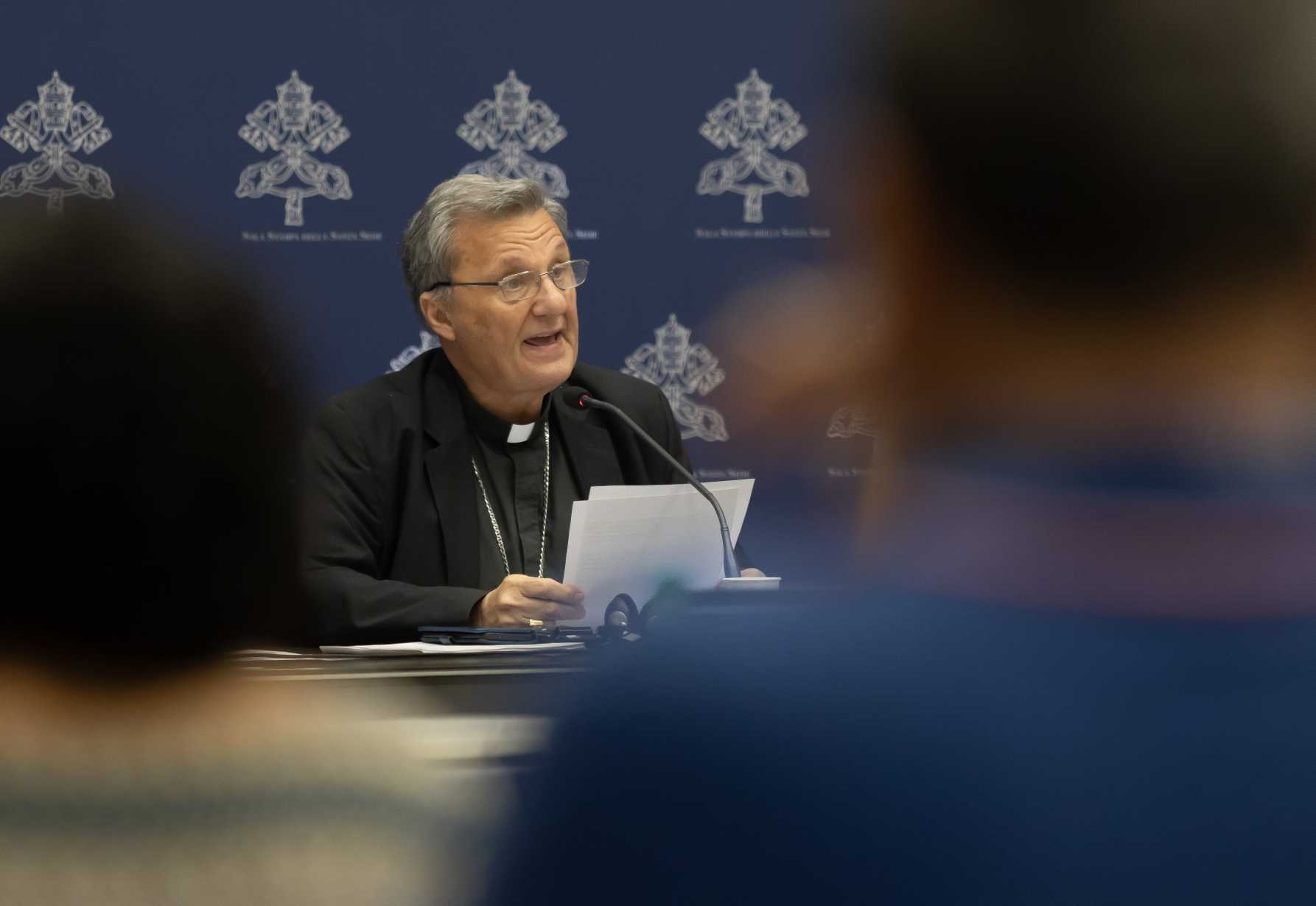Second synod session to open with penitential liturgy
The second session of the Synod of Bishops on synodality will open with a penitential liturgy led by Pope Francis, seeking forgiveness for various sins and focusing on conversion, particularly with a message directed toward young people.
 Justin McLellan
Justin McLellan

Cardinal Mario Grech, secretary-general of the synod, speaks during a news conference at the Vatican Sept. 16, 2024, to present the calendar and list of participants for the second session of the ongoing Synod of Bishops. (CNS photo/Pablo Esparza)
VATICAN CITY (CNS) -- The second session of the Synod of Bishops on synodality, set to bring 368 bishops, priests, religious and laypeople to the Vatican, will begin by asking forgiveness for various sins on behalf of all the baptized.
As synod members did before last year's session, they will spend two days on retreat before beginning work; that period of reflection will conclude Oct. 1 with a penitential liturgy presided over by Pope Francis in St. Peter's Basilica, the Vatican announced.
The liturgy will include time to listen to the testimonies of three people: one who suffered from the sin of abuse, one from the sin of war and third from the sin of indifference to the plight of migrants, according to a Vatican statement announcing the liturgy.
Afterward, "the confession of a number of sins will take place," said the statement, released Sept. 16. "The aim is not to denounce the sin of others, but to acknowledge oneself as a member of those who, by omission or action, become the cause of suffering and responsible for the evil inflicted on the innocent and defenseless."
According to the Vatican, the sins confessed will include: sins against peace; sins against creation, sins against Indigenous populations and migrants; the sin of abuse; sins against women, family and youth; the sin of "using doctrine as stones to be hurled"; sins against poverty; and sins against synodality or the lack of listening and communion.
The liturgy is open to all but is specifically geared toward young people, as it "directs the Church's inner gaze to the faces of new generations," the Vatican said.
"Indeed, it will be the young people present in the Basilica who will receive the sign that the future of the Church is theirs, and that the request for forgiveness is the first step of a faith-filled and missionary credibility that must be reestablished," it said.
Cardinal Mario Grech, secretary-general of the synod, said that in addressing young people, the church wants "to communicate to them and to the world that the church is in a dynamic of conversion."
"After all, this is the path to holiness, not that there is no sin but that we recognize our limits, our weakness, that we are open to conversion, to learning, always with the help of the Lord," he said.
Presenting details for the upcoming synod session at a news conference Sept. 16, Cardinal Jean-Claude Hollerich, relator general of the synod, said most of the participants would be the same as those who participated in the first assembly, which was held in October 2023, though 25 changes were made for different reasons, such as health problems.
Cardinal Timothy M. Dolan of New York, who participated last year as an alternate delegate of the U.S. bishops' conference, will not be at the assembly; Archbishop William E. Lori of Baltimore, who was elected but could not attend in 2023, will take his place as part of the U.S. delegation.
Cardinal Hollerich said that of the 368 voting members, 96 -- or just over a quarter -- are not bishops. Additionally, he said the number of representatives from other Christian communities participating in the synod without voting privileges increased from 12 to 16 "given the great interest that the sister churches have shown in this synodal journey."
Jesuit Father Giacomo Costa, special secretary of the synod, said at the news conference that unlike the first session of the synod on synodality's assembly, which focused on "an awareness and identification of some priorities," the second session is about "going in-depth" into some of the key points raised during the listening sessions around the world and during the first assembly.
But Cardinal Grech confirmed that some of the more controversial points raised, including about ordaining women to the diaconate, would not be a topic of discussion at the assembly. In March, the Vatican announced that Pope Francis had established study groups to examine those issues and report back to him in 2025. But the groups will share a progress report with the synod members at the beginning of the October assembly.
Whereas the synod assembly produced a synthesis report at the end of its first session in 2023, the 2024 session will produce a final document to be given to the pope.
"To date, there has always been a communication to the people of God on the part of the Holy Father," Cardinal Grech said in response to a question on whether the pope will issue a post-synodal exhortation after the synod.
Another introduction into this year's session is the organization of four public "theological-pastoral forums" centered on different topics for a deeper understanding of synodality. The forums, hosted in Rome and open to the public, are titled: "People of God as Subject of the Mission"; "The Role and Authority of the Bishop in a Synodal Church"; "The Mutual Relationship Local Church-Universal Church"; and "The Exercise of the Primacy and the Synod of Bishops."
The forums are intended to respond to the need to "continue the theological, canonical and pastoral deepening of the meaning of synodality for the different aspects of the Church's faith and to offer theologians and canonists the opportunity to contribute to the work of the Assembly," a Vatican statement said.



